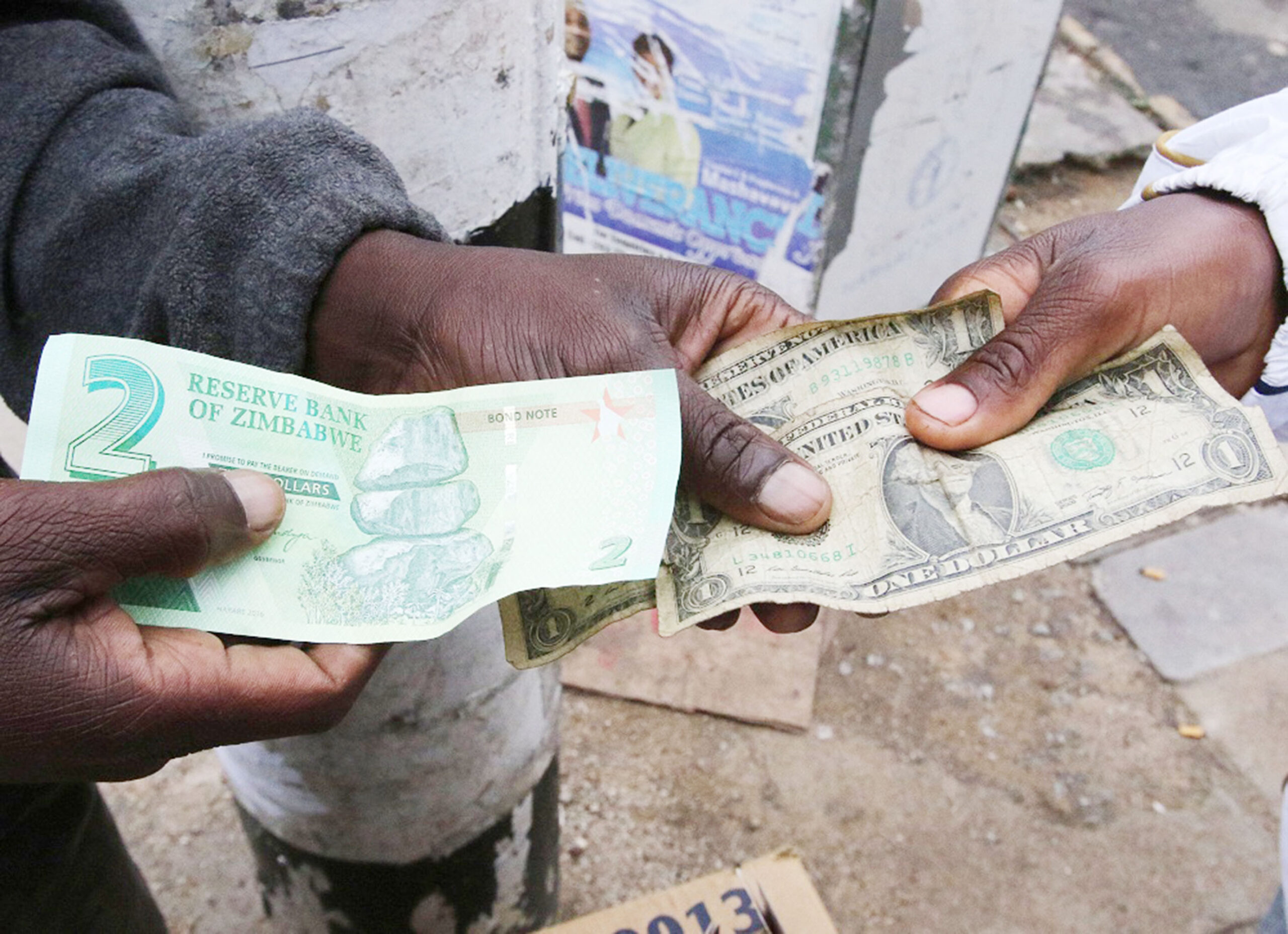Black market records steepest annual rise
THE parallel market exchange rate rocketed by 27% during the third quarter (3Q) of this year, marking its steepest ever growth in one year, researchers at Inter Horizon Securities (IH) said at the weekend.
IH’s authoritative Pulse Meter, which reviewed the performance of all markets during the period came as tempers flared, with terrified authorities mounting co-ordinated raids on firms and individuals to stem the black-market rage, now seen as the greatest threat to the long-expected recovery.
A top banker and a string of industrialists were quizzed or caged last week in a combined Zimbabwe Republic Police and Reserve Bank of Zimbabwe (RBZ) blitz code-named “Operation Pangolin” after basic commodity prices ran amok in tandem with the extensive currency battering.
But the arrests attracted a backlash from Confederation of Zimbabwe Industries president Kurai Matsheza and Confederation of Zimbabwe Retailers boss Denford Mutashu, who called on authorities to stick to moral suasion.
At one point last month, the black market exchange rate climbed to US$1:$184 from about US$1:$120 in January.
Foreign currency auction system rates have also defied a string of ad hoc prescriptions implemented by fire-fighting Finance minister Mthuli Ncube, shooting from about US$1:$83 in January to over US$1:$90 during last week’s trade, the latest indication that in the absence of concrete action, decimation of the defenceless Zimbabwe dollar may touch fresh depth.
Inflationary pressures have also been piling up, IH said in the report that also looks at stock market trends.
“Month-on-month inflation trended upwards for the quarter, possibly in response to increased government spending on agricultural inputs,” IH said.
“The parallel market was considerably volatile, gaining 27% over the quarter, the highest quarterly gain since 2Q20.
“The local currency gradually increased 8% in the first three quarters of the year on the back of an increase in money supply.
“Consequently, the parallel market premium closed 3Q21 at 98% from 59%. On the Zimbabwe Stock Exchange (ZSE), the All Share Index has been on an upward trend, outperforming 2Q21.
“The ZSE market capitalisation is up 246% year to date in real terms while value traded seems to be flat over the period under review,” IH noted.
The central bank has been forced to revise annual inflation targets upwards and prescribe several fresh policy proposals to government following the “worrisome” surge in parallel market rates.
However, in a 14-page internal paper seen by NewsDay Business recently, RBZ governor John Mangudya maintained the 7,8% growth target announced in July, saying bullish international commodity prices and a good agricultural season were still giving Zimbabwe’s under-fire economy impetus to ride out fresh headwinds.
“Worrisomely, developments on the parallel market for foreign exchange are likely to exert further inflationary pressures in the economy,” the central bank chief said.
“The country recently witnessed further depreciation of the parallel market exchange rate from about $130:US$1 to about $160:US$1, implying a parallel market premium of above 70%.
“In view of recent developments, annual inflation is likely to end the year between 35% and 53%, up from the revised targets of between 25% and 35%.
“In addition, the increase in international food and oil prices as well as global inflation continue to exert additional inflationary pressures on the domestic economy,” said Mangudya.
Global inflationary pressures were expected to build up after the International Monetary Fund injected a combined US$630 billion to help address downside risks stemming out of COVID–19-induced lockdowns.newsday.co.zw











